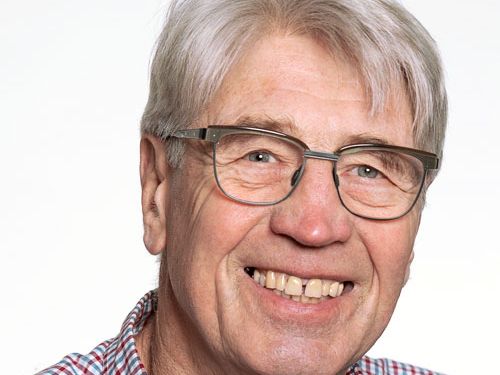Martin Foth-Feldhusen

Our alumni board, personally speaking
Martin Foth-Feldhusen is retired, but still works as a freelance consultant in project management. After an agricultural apprenticeship, second-chance education and a degree in agricultural engineering, he spent two years as a development aid worker in Peru. From 1982 to 1988 he studied social sciences at the University of Bremen, then spent ten years as managing partner of an engineering and consulting company in the environmental sector. From 1998 to 2019, he worked for the Gesellschaft für Internationale Zusammenarbeit (GIZ) in development cooperation, most recently as Deputy Head of GIZ’s Regional Office North in Hamburg.
Volunteering…that’s all well and good, but it also means work. Why do you serve on the board of the alumni association?
I studied social sciences at the University of Bremen and worked with various university institutes during my professional career in international development cooperation. I always found the cooperation exciting and constructive. Now that my professional career has come to an end, I have the time to put my diverse practical experience to use in promoting the university. The alumni network, with its members who work in a wide variety of companies and institutions, can be an effective sounding board to help identify scientific questions and further develop teaching and research at the university.
What was an alumni experience where you thought: “Wow, what a great association!”?
One the university’s 50th anniversary events, an impressive TV talk about decolonisation with Professor Rozena Maart from South Africa, who is also a University of Bremen Research Ambassador. Her thoughts on the internalised and entrenched attitudes spanning generations, both of the colonised and the colonisers, went far beyond the many superficial statements on colonialism and racism [that we often hear]. Never had it been so clear to me how far-reaching and profound the challenge of decolonisation is.
When have you thought: "We could do better"?
On that point, about the alumni association, I can’t say much…
Uni Bremen alumni in ten years: What will be different from today?
I would like to see the alumni association become an effective sparring partner for the university numbers-wise, but also regarding content and in science and education policy. I hope that the alumni association will become an international network in which members actively contribute their experience, contacts, knowledge, ideas and visions, especially to enrich research on urgent socio-political issues like climate change, technological development and the future shape of democracy.
About your time studying/working at Uni Bremen, what makes you say: “I wouldn’t miss that for anything!”?
After studying engineering at a university of applied sciences (1974-1978), which was quite school-like, I appreciated the interdisciplinary work (ISIS) at Uni Bremen. Beyond that, I found the freedom to engage with topics that were relevant to me, questions I was confronted with during and after my two-year posting as a development aid worker in Peru: What does development mean? What does it do to people? Who are the drivers? Also the personal responsibility and self-imposed rigour that it took to achieve the objectives of the study programme!
When you’re not busy with alumni and the University of Bremen, what else is important to you in life?
I enjoy my privileged pensioner status! I started learning a musical instrument (saxophone) at an advanced age. It's a challenge, but also a lot of fun. I can travel – preferably by bicycle. But I’m also happy when I can bring my professional experience to consulting assignments. Ultimately, what spurs me on is the question of how long we as people and as a global society will continue to plunder our last resources for economic growth and prosperity. And whether there might be exit strategies from this system.

